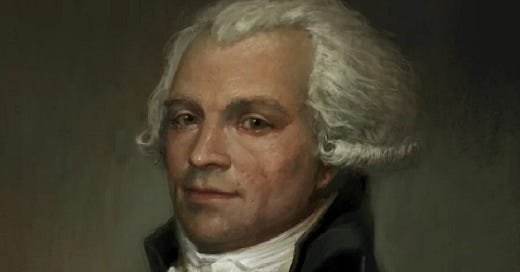A short, CRITICAL History of Philosophy (Chapter 13)
What Was Rousseau's Connection To The French Revolution?
Most philosophy professors are people who talk revolutionary politics but are afraid to get a speeding ticket because it might raise their car insurance. There is some element of this in Rousseau. But, however timid the authors of ideas are, consequential changes spring from them, and their authors are obliged to accept a share of the credit or blame for the results.
As we have mentioned, Socrates’ murderous pupil Critias may have been striving to create his mentor’s ideal republic. That is conjectural. We can be sure, by contrast, that Robespierre and his confrères were trying to inaugurate Rousseau’s ideal republic in France. That effort led to sixteen thousand executions during the Reign of Terror, and, insofar as it laid the groundwork for Napoleon’s rise, it played a part in the deaths of millions more. What culpability does Rousseau have for this? His defenders are apt to point to one of his more famous remarks: “Nothing on this earth is worth buying at the price of human blood.” Shouldn’t he then be absolved of responsibility for the killings ordered by Robespierre and his Committee on Public Safety? Or for the wars that laid waste to much of Europe and that cost so many lives in the succeeding generation?
Keep reading with a 7-day free trial
Subscribe to Jonathan’s Substack to keep reading this post and get 7 days of free access to the full post archives.



